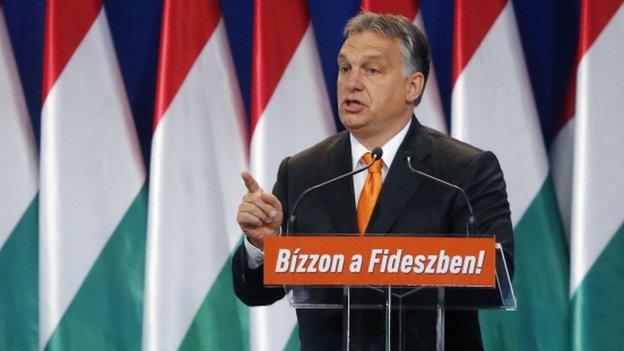Hungary's Fidesz shaken by election defeat
- Published
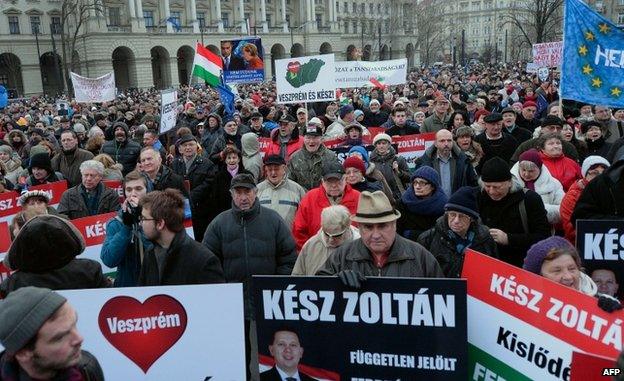
The vote for Zoltan Kesz in western Hungary became a focus for anti-government protesters in Budapest
"There are cracks in the outside walls," warned senior Hungarian politician Tibor Navracsics just before Sunday's dramatic vote.
Those cracks for the governing right-wing party Fidesz were well and truly exposed by an independent candidate's by-election victory that meant it had lost its two-thirds majority in parliament for the first time in five years.
It was Mr Navracsics' departure to become an EU commissioner in Brussels that caused the vote at Veszprem in western Hungary. He won the seat for Fidesz in April last year with a 20% margin. On Sunday, 11,000 of the 22,000 who voted for him last year stayed away.
"I'm not surprised that they've lost the two-thirds majority," said Ervin Csizmadia of the Centre for Fair Political Analysis.
He puts the defeat down to a combination of factors, especially a civic protest movement that emerged last autumn.
"The government defeated opposition parties in elections last year, but has yet to find an appropriate answer to the criticism from the streets," he said.
The Fidesz government backed down over a planned tax on internet use after demonstrations last October.
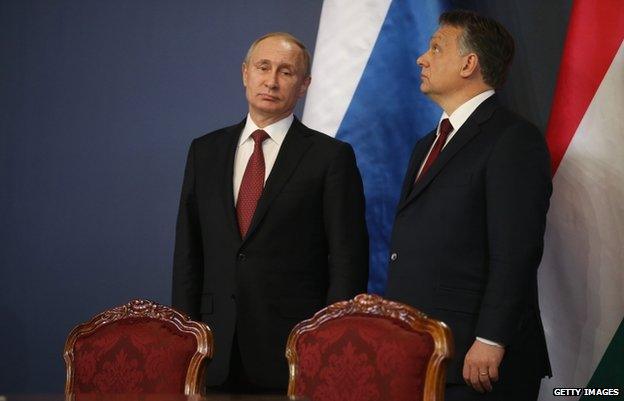
President Putin (left) signed several agreements with Mr Orban during his trip to Budapest
Other smaller protests, against alleged government corruption, have had little visible impact, but Fidesz looks less confident than it has at any moment since it won the 2010 election with a landslide majority.
Breaking ranks
A more recent blow was a very public falling out last month between Prime Minister Viktor Orban and the man who built and ran the Fidesz business and media empire, Lajos Simicska.
"Now we will lose Veszprem," was the first reaction of one senior Fidesz figure, when Mr Simicska broke with the party, and seven top editors of pro-government newspapers and a TV station in his media empire walked out.
In subsequent interviews, Mr Simicska explained that the conflict was political as well as personal.
He was upset by the pro-Russian foreign policy the government is pursuing, he said.
Russian President Vladimir Putin visited Hungary last week, and used the occasion to blame Ukraine for the ongoing conflict there.
Hungary's Nato and EU allies were angry that Hungary had broken ranks to invite Mr Putin for bilateral talks.
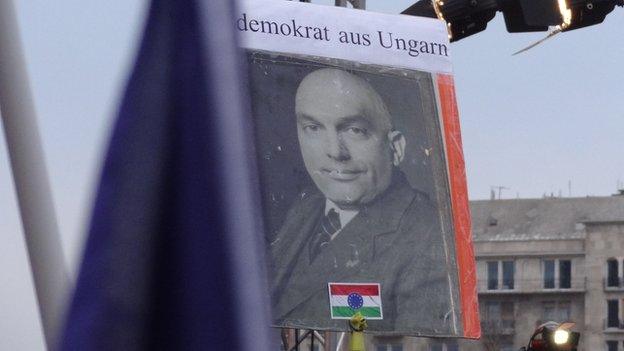
A poster of Viktor Orban mocked up as Hungarian Communist leader Matyas Rakosi appeared at an opposition rally
The government argues that its dependence on Russian gas leaves it no choice but to maintain good relations with Moscow.
Analysts caution that it is too early to start writing Fidesz off. The party still holds 131 of the 199 seats in parliament, and the next parliamentary election is only due in 2018.
The Veszprem result is challenging for opposition parties in Hungary as well.
Zoltan Kesz won as an independent, not as a member of the Socialist or other liberal parties. And there is, as yet, no "independent" party in Hungary, to serve as a focal point for opposition to Fidesz.
- Published22 February 2015
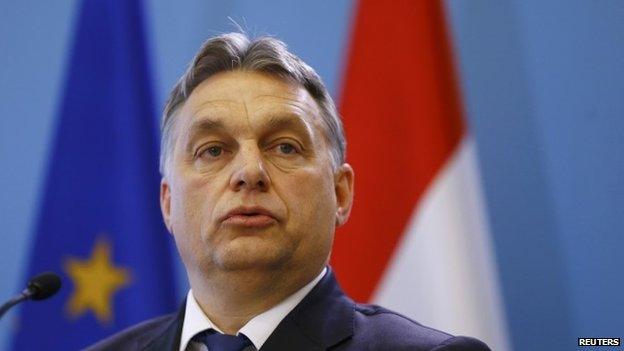
- Published17 February 2015
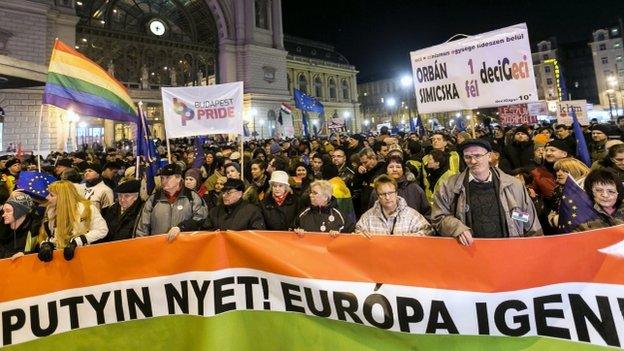
- Published23 October 2014
